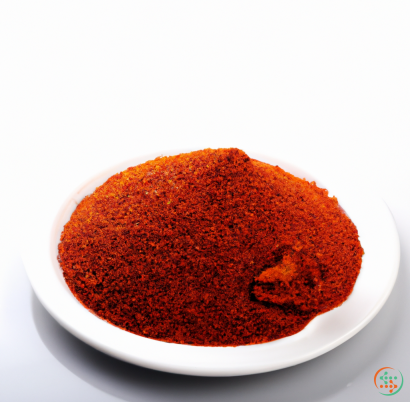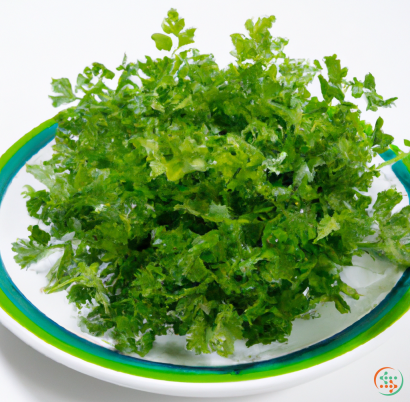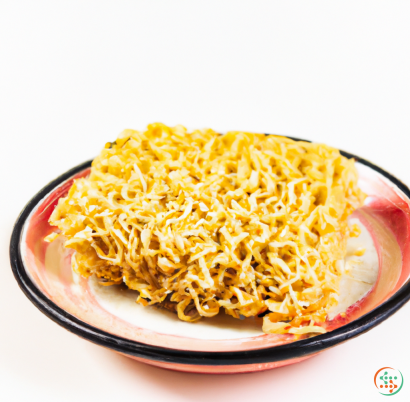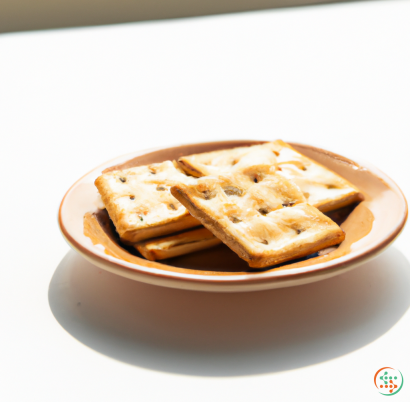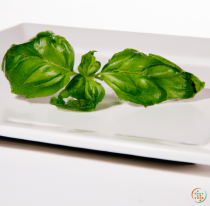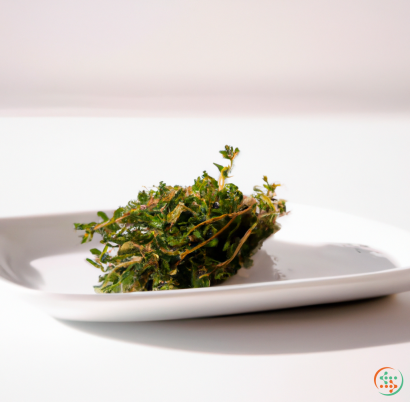Rosemary
If you're looking for a fresh, vibrant herb to liven up your home and cooking, then one of the best choices you can make is rosemary. Not only is it a flavorful and aromatic plant, but it's also an important therapeutic herb with a long and storied history! So, let's take a deeper dive into this fragrant culinary powerhouse and explore what there is to know about rosemary.
Rosemary (Rosmarinus officinalis) is an herbaceous shrub that's part of the mint family. Native to the Mediterranean area (one of the top producers of this herb is France), its long, bright green leaves are a popular culinary ingredient and appear in diverse dishes, from breads and sauces to salads and roasted vegetables. It also has a delightful aroma and is often used in essential oils and potpourri. Apart from its well-known use in the kitchen, rosemary has been used throughout history for medicinal purposes—its unique scent has been demonstrated to reduce stress and improve memory and alertness.
The most common way to enjoy rosemary is fresh, either as an ingredient in recipes or in herbal teas. In its fresh form, the leaves of the plant have a slightly bitter taste and a pungent, pine-like aroma. But no matter how it's used, its flavor and scent are unmistakable. Rosemary also dries easily, and its savory, pungent taste is preserved even when the herb is stored in a glass jar in the pantry.
The versatility of rosemary cannot be overstated. It's equally delightful as a seasoning for fish, poultry, or dishes like rice or quinoa, as well as an infusion for sauces and soups. To boost flavor and make any dish more herbal and pleasing, just adding a few freshly chopped sprigs of rosemary is often enough to do the trick.
In addition to its culinary purposes, rosemary also has a ton of medicinal properties. The flowers, leaves, and stems of the plant are often used to make tea, tinctures, and infusions which can help with a variety of health conditions. These include reducing bloating, calming indigestion, and even relieving headaches. Throughout history, rosemary has also been used to promote healthy skin and hair, stimulate the central nervous system, and even reduce anxiety and stress.
Apart from its medicinal uses, rosemary can be used to freshen the air in your home and make it more inviting. Add a few sprigs of this herb to a bowl of water and it will turn the entire environment around your house a bit more pleasant. Its scent is also known to be great for inducing a calming atmosphere and easing restlessness.
To sum it up, rosemary is an incredibly versatile plant—not only does it have amazing taste and aroma, but its therapeutic and medicinal properties have been celebrated for centuries. From cooking to medicinal use, this herb is a powerful source of essential vitamins and minerals. And it works wonders to boost flavor and add a distinct, extraordinary tone to any recipe. So go ahead and introduce this unique plant to your life and enjoy its many qualities!
A rosemary plant can have many uses in the kitchen, such as flavoring dishes or adding some color and scent to a garden. From the creation of the plant itself, to the way it is processed, stored and cooked, there is a process that ensures the freshness, flavor and quality of the rosemary all the way to the dinner plate.
The Creation Of A Rosemary Plant
The creation of a rosemary plant all starts with the seed. Rosemary plants, just like any other plant species, need the right environment and soil conditions in order to germinate. The soil must be well-draining, have a neutral pH, and have plenty of organic matter in it. Seeds should be planted at least an inch deep in the soil and covered with a thin layer of mulch. Optimal temperatures for germination are between 60 and 70 degrees Fahrenheit (15 to 21 Celsius). Once planted, the soil must stay consistently moist, but not soggy, to ensure the successful germination of the seeds.
Once the seeds have germinated and grown into seedlings, the rosemary plants are ready to be moved to their permanent home in the garden. Rosemary plants are fond of full sun, so they should be planted in a spot where they will get at least 6 to 8 hours of direct sunlight per day. They should also be planted far away from trees or other taller plants as these can block the light otherwise needed by the rosemary plant. Rosemary plants prefer a slightly alkaline soil, so spending some time mixing in compost or manure prior to planting them may be necessary.
Once planted, rosemary plants need regular watering, at least once a week during the different seasons, but more often during the dry summer months. Other maintenance steps that need to be taken to ensure healthy plants include pruning, dead-heading, and mulching. Pruning should be done annually in late winter to control size and shape, while dead-heading should be done regularly to encourage new growth. Finally, a 2 to 3 inch thick layer of mulch around the plants helps retain moisture, reduces weeds, and insulates the plant’s roots during the colder months.
Harvesting & Processing Rosemary
Once the rosemary plants are mature and healthy enough, they can be harvested. The most flavorful and fragrant rosemary can be found on the tips of the stems, but the lower leaves can also be harvested. It is important to harvest the rosemary in the early morning hours when the humidity is high and the oils in the plant are at their highest concentration.
After harvesting, the rosemary leaves can be either used fresh or dried. To store fresh rosemary for a short period of time, the best method is to wrap the sprigs in a damp paper towel and place them in the refrigerator. Dried rosemary can be stored for longer periods of time in airtight containers. For the most fragrant, flavorful and nutritive dried rosemary, the leaves should be dried slowly at a low temperature. The best method is to bunches the sprigs and hang them upside down in an area with warm air, low humidity, and good ventilation – then wait a couple of weeks or until the leaves are completely dry and brittle.
Traveling To The Dinner Plate
Now that the rosemary has been harvested and processed, it is ready to be transported to its destination — the dinner plate. The journey begins at the producer, where the rosemary is either sold fresh or processed into a variety of products, such as extracts, oils, additives, etc. Depending on the destination, the rosemary may be stored at this point in cold storage or sent off immediately.
When the rosemary arrives at the grocery store, it must pass a quality control inspection to make sure it is fit for consumption. Fresh rosemary is inspected for any signs of damage, harvest methods, expiration dates, and any contamination from pesticides or herbicides. The same is true for dried rosemary – it is inspected for any signs of fungal growth or other contaminants.
Once the fresh or dried rosemary has passed the quality control inspection, it is ready to be purchased by the consumer. The rosemary can be picked up from the grocery store or bought online at a wide variety of specialty websites.
Once the rosemary has been acquired, it’s time to put it to use in the kitchen! Fresh rosemary can add texture and flavor to a wide range of dishes. It’s particularly popular in Italian and Mediterranean cooking, where the flavors of the herb have a subtle but profound effect on the overall dish. Fresh rosemary is also delicious when added to tomato-based sauces or roasted vegetables. Dried rosemary can be used to create marinades or rubs, or it can be ground and used as a surprisingly flavorful seasoning. The options for creativity in the kitchen are virtually endless!
Conclusion
From the creation of the plant to the way it travels to the dinner plate, the processing of rosemary is a long and meticulous process. If it’s cared for properly, rosemary can be a flavorful and fragrant addition to a variety of dishes. The hard work and dedication of farmers, producers, and grocers all come together to bring the distinctive flavor of rosemary to your dinner plate.
| Vitamin A | 0.146 mg | |
| Vitamin C | 0.0218 grams | |
| Vitamin B1 | 0.04 mg | |
| Vitamin B2 | 0.15 mg | |
| Vitamin B3 | 0.91 mg | |
| Vitamin B5 | 0.8 mg | |
| Vitamin B6 | 0.34 mg | |
| Vitamin B9 | 0.109 mg |
| Calcium | 0.317 grams |
Daily Value 1.3 g
|
| Iron | 0.00665 grams |
Daily Value 0.018 g
|
| Magnesium | 0.091 grams |
Daily Value 0.4 g
|
| Phosphorus | 0.066 grams |
Daily Value 1.25 g
|
| Potassium | 0.668 grams |
Daily Value 4.7 g
|
| Sodium | 0.026 grams |
Daily Value 2.3 g
|
| Zinc | 0.93 mg |
Daily Value 0.011 g
|
| Copper | 0.3 mg |
Daily Value 0.9 mg
|
| Manganese | 0.96 mg |
Daily Value 0.0023 g
|
| Tryptophan | 0.051 grams | |
| Threonine | 0.136 grams | |
| Isoleucine | 0.136 grams | |
| Leucine | 0.249 grams | |
| Lysine | 0.143 grams | |
| Methionine | 0.047 grams | |
| Cystine | 0.037 grams | |
| Phenylalanine | 0.169 grams | |
| Tyrosine | 0.1 grams | |
| Valine | 0.165 grams | |
| Arginine | 0.153 grams | |
| Histidine | 0.066 grams | |
| Alanine | 0.172 grams | |
| Aspartic Acid | 0.391 grams | |
| Glutamic Acid | 0.361 grams | |
| Glycine | 0.159 grams | |
| Proline | 0.136 grams | |
| Serine | 0.129 grams |
| Total Sugars | 0.131141 grams |
per 100g
|
| Capric acid (10:0) | 0.02 grams |
|
| Lauric acid (12:0) | 0.01 grams |
|
| Myristic acid (14:0) | 0.12 grams |
|
| Palmitic acid (16:0) | 1.92 grams |
|
| Stearic acid (18:0) | 0.23 grams |
|
| Total Saturated fatty acids: | 2.3 g | |
| Oleic acid (18:1) | 1.02 grams |
|
| Palmitoleic acid (16:1) | 0.07 grams |
|
| Gadoleic acid (20:1) | 0.05 grams |
|
| Total Monounsaturated fatty acids: | 1.14 g | |
| Linolenic acid (18:3) | 0.41 grams |
|
| Linoleic acid (18:2) | 0.45 grams |
|
| Total Polyunsaturated fatty acids: | 0.86 g | |
| Phytosterols | 0.04 grams |
|
| Total Sterols: | 0.04 g | |

